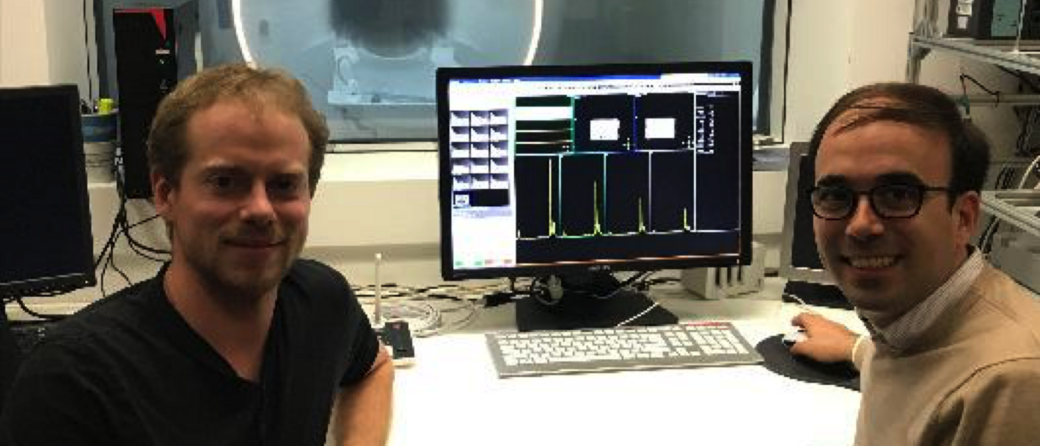Two MSB-PIs – Daniel Cremers and Dimitrios Karampinos – have been awarded prestigious Proof-of-Concept Grants by the European Research Council (ERC). Daniel Cremers is professor of Computer Vision and Artificial Intelligence at TUM and conducts research in the field of mathematical image processing and pattern recognition. The research focus of Dimitrios Karampinos, Professor of Experimental Magnetic Resonance Imaging at TUM, lies on the development of novel Magnetic Resonance Imaging (MRI) acquisition and reconstruction methods with an emphasis on the extraction of quantitative imaging biomarkers.
Proof-of-Concept Grants are given to scientists who want to see if their ERC research projects can be turned into marketable innovations. Overall, the ERC awarded seven projects Starting Grants and three projects Proof-of-Concept Grants at the Technical University of Munich (TUM).
Prof. Daniel Cremers (TUM Department of Informatics)
Prof. Cremers conducts research in the field of mathematical image processing and pattern recognition. The Proof-of-Concept Grant for his "Simultaneous Localization & Mapping for Augmented Reality" project will be used to further develop the technology he previously investigated in his "3D Reloaded" project. This involved the use of algorithms to model the real world in 3D and in real time with the help of two-dimensional videos. Prof. Cremers now wants to develop this technology for smartphones, enabling users to find their way in locations where GPS is not available - for example, locating the correct exit in a subway station or navigating to a special exhibit in a museum. He also wants to develop the augmented reality applications further to allow new objects to be added to the 3D model of reality. This would allow surgical teams to practice new operations, for example, or enable customers looking to buy a sofa online to see how virtual copies of retailers' models would look in their own living room.
The ERC previously awarded Daniel Cremers a Starting Grant in 2009 and a Consolidator Grant in 2014 for his research.
Prof. Dimitrios Karampinos (TUM School of Medicine)
In 2030, half of humankind is expected to be overweight. Since obesity can lead to serious illnesses like diabetes and cardiovascular disease, researchers all over the world are looking into ways to reduce obesity and encourage people to change their lifestyles. Funded by the ERC, Prof. Karampinos has developed an MRI technology to non-invasively assess fat microstructure. In his Proof-of-Concept project, FatVirtualBiopsy, he will further develop this technology for a wider clinical use by doctors and specialists. Visualizing lipid droplet size in the bodies of patients directly, painlessly and in real-time could be part of future clinical obesity prevention programs and used as a way to assess the success of therapies and interventions. The Proof-of-Concept project builds on Karampino's 2015 ERC Starting Grant project ProFatMRI.
This article is based on a release published by the TUM Corporate Communications Center on TUM’s central news page.
MORE INFORMATION:
Full article on TUM's news webpage
Website of Daniel Cremers' research group: Computer Vision & Artificial Intelligence
Website of Dimitrios Karampinos' research group: Experimental Magnetic Resonance Imaging
CONTACT:
Media Relations MSB:
Dr. Paul Piwnicki
Phone: +49 89 289 10808
Email: paul.piwnicki@tum.de
